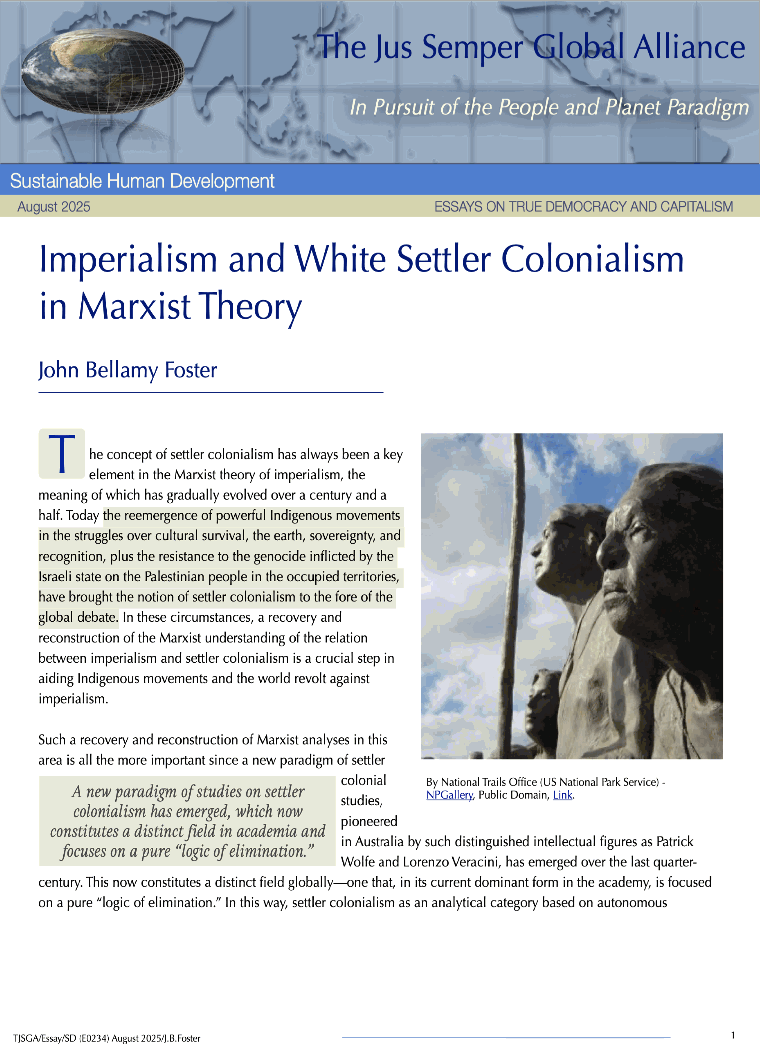John Bellamy Foster "It is now widely recognised in the research on settler colonialism that Karl Marx was the foundational thinker in this area in his discussion of “so-called primitive accumulation”; his references to colonialism proper, or settler colonialism; and his analysis of Edward Gibbon Wakefield and the “The Modern Theory of Colonisation,” with which he ended the first volume of Capital.4 However, such recognition of Marx’s numerous references to settler colonialism seldom goes on to uncover the full depth of his analysis in this regard. As an authority on ancient Greek philosophy who wrote his dissertation on the ancient materialist philosopher Epicurus, Marx was very familiar with the ancient Greek cleruchy, or settler colony established as an extension of its founding city state. In many ways, the most notable Athenian cleruchy was the island/polis of Samos, the birthplace of Epicurus, whose parents were cleruchs or settler colonialists. The cleruchy in Samos was established in 365 BCE, when the Athenians forcibly removed the inhabitants of the island and replaced them with Athenian citizens drawn from the indigent population of an overcrowded Athens, turning Samos not only into a settler colony, but also a garrison state within the Athenian Empire. The dispute in the Greek world over the cleruchy in Samos was subsequently at the center of two major wars fought by Athens, resulting in the final downfall of Athens as a major power with its defeat by Macedonia in 322 BCE. This led to the dismantling of the cleruchy in Samos (in compliance with a decree issued by Alexander the Great shortly before his death), the removal of the Athenian settlers, and the return of the original population to the island. For Marx and other classically educated thinkers in the nineteenth century, the Athenian cleruchy in Samos represented a pure model of colonialism. Although settler colonialism was to take new and more vicious forms under capitalism, reinforced by religion and racism, the underlying phenomenon was thus well known in antiquity and familiar to nineteenth-century scholars.
For a full read of this essay, click here or on the picture to download the pdf file.
|

- © The Jus Semper Global Alliance
| Home |  | Resources |  | Economic Data |  | Imperialism and White Settler Colonialism in Marxist Theory |


